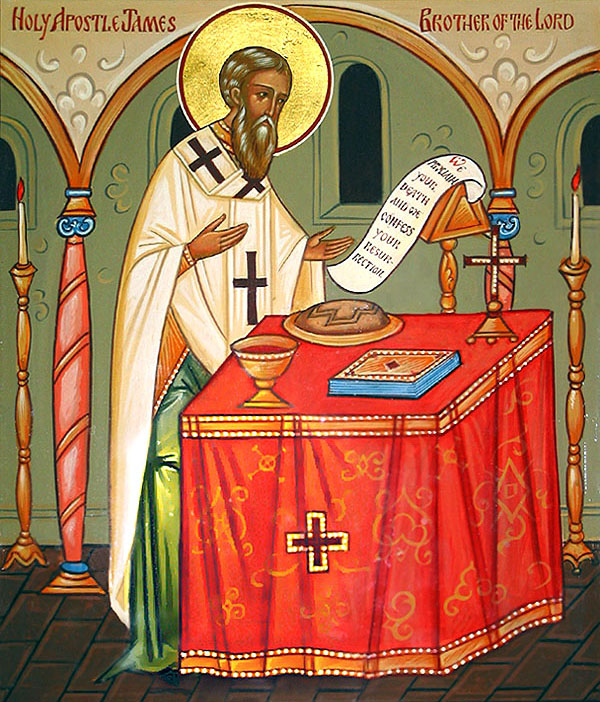Letters of Saint James

According to Church Tradition, the letter of James was written not by either of the apostles, but by the “brother of the Lord” who was the first bishop of the Church in Jerusalem (see Acts 15, Gal 1.19). The letter is addressed to the “twelve tribes in the dispersion” which most probably means the Christians not of the Jerusalem Church.
The main purpose of the letter of James is to urge Christians to be steadfast in faith and to do those works which are called for by the “perfect law” of Christ which is the “law of liberty” (1.25, 2.12). It aims to correct the false opinion that because Christians are freed from the ritual works of the Mosaic law through faith in Christ, they need not do any good works whatsoever and are not subject to any law at all. Thus, the author writes very clearly against the doctrine of salvation by “faith alone” without the good works that the believer must necessarily perform if his faith is genuine.
What does it profit, my brethren, if a man says he has faith but has not works. Can his faith save him? If a brother or sister is ill-clad and in lack of daily food and one of you says to them, “Go in peace, be warmed and filled,” without giving them the things needed for the body, what does it profit? So faith by itself, if it has no works, is dead.
Show me your faith apart from your works, and I by my works will show you my faith. You believe that God is one; you do well. Even the demons believe—and shudder. Was not Abraham our father justified by works, when he offered his son Isaac upon the altar? You see that faith was active along with his works, and faith was completed by works, and the scripture was fulfilled which says, “Abraham believed God, and it was reckoned to him as righteousness;” and he was called the friend of God. You see that a man is justified by works and not by faith alone (2.14–24).
First among the good works which the letter insists upon most vehemently is the work of honoring and serving the poor and lowly without partiality and selfish greed which is the cause of all wars and injustices among men (2.1–7). The author is passionately opposed to any “friendship with the world” which makes man an “enemy of God” because of covetousness (4.1–4). He calls the rich to “weep and howl for the miseries which are coming” to them because of the “luxuries and pleasures” which they have attained at the expense of others whom they have exploited (5.1–6).
Together with his despising of wealth, James teaches the absolute necessity of “bridling the tongue,” the “little member” which is a “fire” that man uses to boast, slander, condemn, swear, lie and speak evil against his brethren, “staining the whole body” and “setting aflame the whole cycle of nature” (3.1–12).
If anyone thinks he is religious, and does not bridle his tongue but deceives his heart, this man’s religion is in vain. Religion that is pure and undefiled before God and the Father is this: to visit orphans and widows in their affliction, and to keep oneself unstained from the world (1.26–27).
The teaching of the letter of James that “every good gift and perfect gift is from above coming down from the Father of lights” (1.17) has become part of the dismissal prayer of the divine liturgies of the Orthodox Church. The letter of James also provides the Church with the first epistle reading for its sacrament of the unction of the sick.
Is any among you suffering? Let him pray. Is any cheerful? Let him sing praise. Is any among you sick? Let him call for the presbyters (elders) of the Church, and let them pray over him, anointing him with oil in the name of the Lord; and the prayer of faith will save the sick man, and the Lord will raise him up; and if he has committed sins, he will be forgiven. Therefore confess your sins to one another, and pray for one another, that you may be healed (5.13–16).
